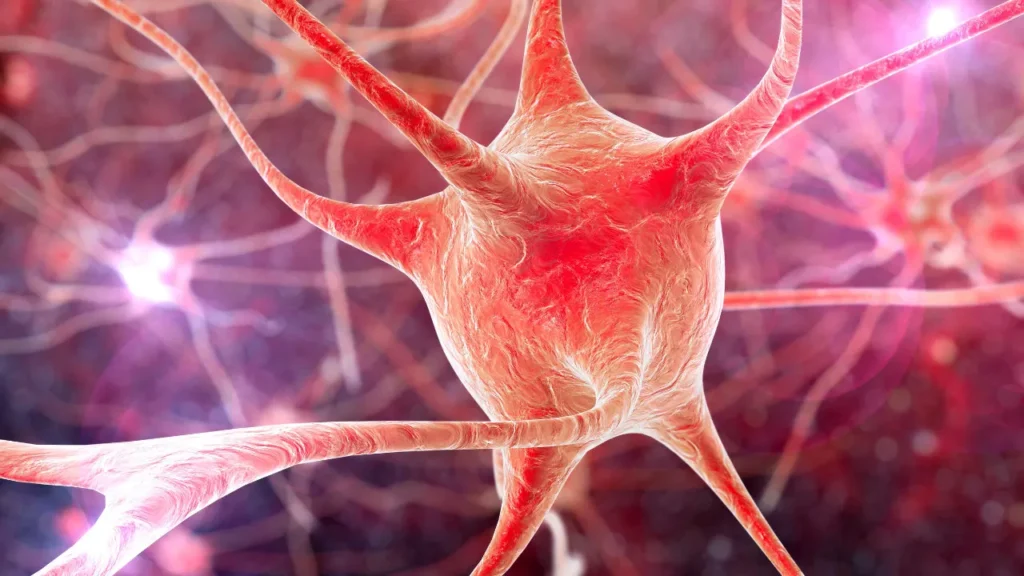Tangerine is a hypothetical nootropic substance. In this article, we will discuss the potential of tangerine as a nootropic as we explore the properties, health advantages, recommended dosage, adverse effects, and possible drug interactions of tangerine with the goal of offering a thorough grasp of its potential use to improve focus, alertness, and cognition.
You May Also Like:
ONNIT Supplements Antarctic Krill Oil Reviewed: A Leading Memory Support Supplement
Tangerine: Benefits, Dosage, Side Effects, Drug Interactions, and Other Important Information is an original (NootropicsPlanet) article.
Nature of Tangerine
In this perspective, tangerine is seen as a synthetic substance intended to improve cognitive performance. Its well-designed molecular structure allows it to pass through the blood-brain barrier, which is essential for any drug that aims to influence cognitive functions. The chemical structure of the substance specifically targets neurotransmitter systems including dopamine and acetylcholine, which are essential for executive, memory, and attentional processes.
Health Benefits of Tangerine
1. Enhanced Memory and Learning
Improvements in these cognitive domains can be substantial due to tangerine’s action on acetylcholine and dopamine, two neurotransmitters that are essential for learning and memory. It might improve synaptic plasticity. Synaptic plasticity is the brain’s capacity to create new synaptic connections. By making more acetylcholine available, new memories can be formed easily and the learning curve would be easier. Contrarily, dopamine modulation has an impact on motivation and reward learning, two processes necessary for goal-directed behavior and the retention of knowledge that is regarded as worthwhile or gratifying.
2. Increased Attention and Focus
By modulating neurotransmitter systems, Tangerine can enhance the brain’s ability to sustain attention and focus. This is particularly beneficial in environments requiring prolonged concentration, such as studying or complex problem-solving tasks. The enhancement of dopamine function, for instance, is directly related to improved executive functions and the ability to filter distractions, which are critical components of attentional control.
3. Neuroprotective Effects
Tangerine may have long-term advantages for brain health due to its neuroprotective properties, in addition to its immediate cognitive boosts. These could include the lowering of processes that lead to neurodegeneration, such as inflammation and oxidative stress, in brain tissue. Tangerine may decrease the course of neurodegenerative disorders or lessen the cognitive decline brought on by aging by shielding neurons from harm and encouraging cellular repair mechanisms.
4. Promotion of Neurogenesis
Recent research indicates that certain cognitive enhancers may promote neurogenesis, or the development of new neurons, particularly in the hippocampus. The hippocampus is the region of the brain essential for memory consolidation and spatial orientation. Tangerine’s chemical composition may be engineered to promote neurogenesis through direct interactions with neural stem cells or by generating a neurochemical milieu that facilitates the development and maturation of neurons.

Chemistry of Tangerine
In our imaginary world, tangerine is designed to interact with the intricate chemistry of the brain. Its molecular makeup is engineered to maximize its solubility and blood-brain barrier crossing capacity. These two properties are essential for any material meant to have a major impact on brain function.
Tangerine may boost the synaptic availability of neurotransmitters such as dopamine and acetylcholine by molecularly imitating their structures. Alternatively, it may prolong their activity by inhibiting the enzymes that break them down, such as monoamine oxidase for dopamine and acetylcholinesterase for acetylcholine. Its chemical makeup may also be modified to directly increase receptor activation, amplifying the effects of neurotransmitters without actually raising their concentration.
Mechanism of Action of Tangerine
Tangerine acts physiologically by increasing synaptic plasticity, regulating neurotransmitter levels, and boosting the effectiveness of neural communication. As mentioned, tangerine can increase brain signal transmission and cognitive function by making neurotransmitters like dopamine and acetylcholine more readily available. Its capacity to promote neurogenesis and shield brain tissue from oxidative damage also adds to its capacity to improve cognition.

Optimal Dosage of Tangerine
To maximize the advantages of Tangerine and minimize any potential adverse effects, the ideal dosage must be determined. The effective dose varies greatly from person to person based on variables like metabolism, body weight, and pre-existing cognitive abilities. To determine a suggested dosage range that guarantees both efficacy and safety, clinical studies and empirical research are crucial. It is advised to take a careful approach, starting with a low dose and progressively increasing it depending on effectiveness and tolerance until such data are available.
Side Effects of Tangerine
Like any medication or nootropic, tangerine could have negative effects. In the world of cognitive enhancers, adverse effects like headaches, jitters, sleeplessness, and gastrointestinal discomfort are frequently observed. It is possible to lessen these effects, which are frequently dose-dependent, by changing the dosage or timing of ingestion. However, long-term safety data is required to understand tangerine’s risk profile thoroughly.

Potential Substance Interactions with Tangerine
Tangerine’s effectiveness and safety may be affected by interactions with other drugs. It is crucial to take into account how it may interact with over-the-counter, prescription, and other nootropic treatments. Tangerine, for example, may worsen side effects such as jitteriness and sleepiness when combined with stimulants. However, it may also have both positive and negative synergistic effects when used in conjunction with other cognitive enhancers. It is advised to speak with a healthcare professional to prevent negative interactions.
Best Responsible Use of Tangerine
A few things need to be taken into account when using Tangerine to improve cognition responsibly. First off, purity and precise dosing are guaranteed when the chemical is acquired from reliable suppliers. Second, users can select an effective yet safe dosage by starting low and keeping an eye out for unwanted effects. Thirdly, being aware of possible interactions with other substances would effectively prevent any negative side effects. Ultimately, preserving cognitive health requires taking into account the long-term effects of use, including the potential for tolerance and reliance.
Tangerine:
Conclusion
The hypothetical supplement that is known as Tangerine is a fantastic choice if you are looking for supplements to improve your cognitive functions. This supplement is believed to improve your cognitive ability which ranges from thinking skills, awareness, focus, and creativity. Its ability lies in two major points which are its specificity in intensifying the effect of neurotransmitters and its ability to pass through the blood-brain barrier. The chemical makeup of tangerine is hypothetically modified in that it can directly activate the receptors and amplify the effects of neurotransmitters.
However, when it comes to potent supplement that affects cognitive function, users must always find out the exact dose that is suitable for them as the effective dose for each individual varies. Aside, it is also important to consider potential interactions with medications and to choose supplements from reputable sources to ensure quality and safety.

References:
- Long-Term Suppression of The Development of Complementary Memory Storage Sites in Mice: Functional Interdependence of Acetylcholine and Dopamine. Retrieved from:https://pubmed.ncbi.nlm.nih.gov/1438499/
- Cholinergic-Dopaminergic Interactions in Cognitive Performance. Retrieved from:https://pubmed.ncbi.nlm.nih.gov/2078161/
- Acetylcholine: A Neurotransmitter for Learning and Memory? Retrieved from:https://pubmed.ncbi.nlm.nih.gov/8806017/
Important Note: The information contained in this article is for general informational purposes only, and should not be construed as health or medical advice, nor is it intended to diagnose, prevent, treat, or cure any disease or health condition. Before embarking on any diet, fitness regimen, or program of nutritional supplementation, it is advisable to consult your healthcare professional in order to determine its safety and probable efficacy in terms of your individual state of health.
Regarding Nutritional Supplements Or Other Non-Prescription Health Products: If any nutritional supplements or other non-prescription health products are mentioned in the foregoing article, any claims or statements made about them have not been evaluated by the U.S. Food and Drug Administration, and such nutritional supplements or other health products are not intended to diagnose, treat, cure, or prevent any disease.


